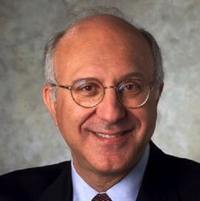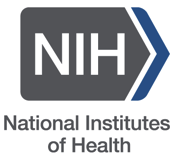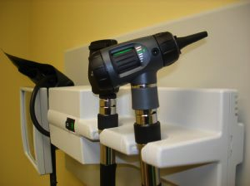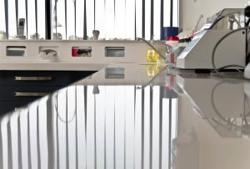|
– BHI offers program that guides biohealth startups in securing federal funding –
ROCKVILLE AND BALTIMORE, MARYLAND, June 10, 2014 – BioHealth Innovation, Inc. (BHI) announced today that two local biohealth companies to which it has provided strategic assistance, N5 Sensors, Inc. and BioDatomics, have secured Small Business Innovation Research (SBIR) awards. N5 Sensors, a BHI client, received two awards: one from the Enivronmental Protection Agency (EPA) and one from the National Science Foundation (NSF). BioDatomics, which participated in a federal funding assistance program offered by BHI, secured an SBIR grant from the National Institutes of Health (NIH)1. The U.S. federal government’s SBIR program encourages domestic small businesses to engage in federal research and development that has the potential for commercialization. The SBIR program empowers these companies to develop their trade and provides a path to profitability.
“BHI is dedicated to supporting start-up biohealth companies in Central Maryland in their submission of competitive SBIR applications,” said Ethan Byler, Director, Innovation Programs, BioHealth Innovation, Inc. “We congratulate N5 Sensors and BioDatomics on receiving SBIR grants from the EPA, NSF and the NIH, respectively.”
back to top 

Senseonics, a privately held medical device company focused on the development and commercialization of the first fully implantable, long-term continuous glucose monitoring (CGM) system, announced that it has raised an additional $20 million of private equity financing. Senseonics also announced that Mirasol Panlilio, formerly of Abbott Diabetes Care and LifeScan, has joined the company as Vice President of Global Sales and Marketing.
Current investors Anthem Capital, Delphi Ventures, Greenspring Associates, Healthcare Ventures, New Enterprise Associates and other strategic partners all participated in the financing round. Senseonics intends to use the proceeds to continue its product development initiatives including completing pivotal trials in Europe, obtaining CE mark, and initiating IDE trials in the United States. “We’re very happy of the continued support from our investors as we near the completion of the product development efforts for our first generation long-term CGM system, “ said Tim Goodnow, CEO and President. Senseonics has recently begun its European pivotal trials and expect to complete site initiation of all seven European sites before the end of summer.
back to top 

Rockville-based CytImmune Sciences Inc. has raised $400,000 from the Maryland Venture Fund, Montgomery County and an unnamed venture investor to push Aurimune — a drug that pairs a decades-old tumor-fighting agent with gold nanoparticles — into phase 2 trials.
The Maryland Venture Fund led the round with $200,000, with another $100,000 coming from the Montgomery County Department of Economic Development and the unidentified investor.
back to top 

Ventana Medical Systems, Inc. (Ventana), a member of the Roche Group and MedImmune, the global biologics research and development arm of AstraZeneca, today announced they are jointly developing a PD-L1 (SP263) immunohistochemistry assay to enroll patients in clinical trials for MedImmune's MEDI4736 anti-PD-L1 therapy for non-small cell lung carcinoma. This includes the recently commenced MEDI4736 ATLANTIC trial that will enroll only patients who express PD-L1 as determined by the VENTANA assay.
MEDI4736 is an investigational, engineered, human monoclonal antibody directed against programmed cell death ligand 1 (PD-L1). Signals from PD-L1 help tumors avoid detection by the immune system. It is believed that by targeting PD-L1, MEDI4736 may block this ligand from sending out signals to T-cells to 'ignore' tumor cells, thereby countering cancer's immune-evading tactics.
back to top 

GSK, formerly Glaxo SmithKline, and the Philadelphia Foundation have announced a $5 million grant package available to non-profits which will lead to healthier lives.
It’s called the GSK IMPACT Grant. IMPACT stands for Innovative, Measured, Partnered, Accountable, Community Centered and Transformative. Katie Loovis is GSK’s director of Community Relations.
back to top 

DATE: June 13, 2014, 8:30 a.m.-5 p.m.
LOCATION: Institute for Bioscience and Biotechnology Research, University of Maryland, in Rockville, MD
Emerging Strategies for the Production and Characterization of Biosimilars
The biomanufacturing industry faces an unprecedented challenge with the emergence of biosimilars. The pathway to approval for biosimilars is a fluid process and several key aspects are still not determined. The University of Maryland and the National Institute of Standards and Technology (NIST) will deliver a one-day symposium on the current trends of characterization and production of biosimilars. On Friday, June 13, 2014 at 8:30 am join the thought-leaders, policy-makers, and creators of biosimilars as we present current trends, ideas, and predictions.
back to top 
 June 11-12, 2014 June 11-12, 2014
Find out more about Strand Life Sciences here.
Learn about the current and future initiatives of the International Collaboration for Clinical Genomics (ICCG)! As part of our commitment to data sharing and collaboration to improve patient care, ICCG is creating a universal, clinical-grade database of genomic variation (including structural and sequence variants), available to the public through resources such as NCBI's ClinVar database, and much more. We encourage the attendance of clinical laboratory personnel (from both cytogenetics and molecular communities), clinicians, genetic counselors, and others that are interested in setting the standards for clinical-grade databases of genomic variation.
back to top 

PRESENTER:
Karen Ambrose, Program Director, Business, Professional Licensure and Certification Programs
Montgomery College, Workforce Development and Continuing Education
ABSTRACT:
Montgomery College has joined with the world renowned Kauffman Foundation in support of current and future business owners before, during, and after the start-up process. Our plethora of courses is designed to meet the entrepreneurial needs of the aspiring business person and those who dream of business ownership.
Free monthly program offered through the Gateway to Innovation: Montgomery County Welcome Center for Federal and Academic Tech Transfer. For more information and additional calendar items, please visit TechTransferConnection.com.
Engage with others in the tech transfer field by joining the Gateway to Innovation LinkedIn Group.
back to top 

MdBio Foundation is looking for solutions to build a diverse and highly qualified STEM workforce. Read the latest from CEO Brian Gaines published in the Washington Business Journal.
Google turned heads last week when it disclosed that its workforce includes a troublingly low rate of women and minorities. We applaud Google for its leadership in sharing this data. The disclosure sparked national questions about the hiring practices at our most innovative companies.
back to top 

Johns Hopkins biomedical engineering students have designed a lightweight, easy-to-conceal shirtlike garment to deliver lifesaving shocks to patients experiencing serious heart problems. The students say their design improves upon a wearable defibrillator system that is already in use and should help persuade patients at risk for sudden cardiac arrest to wear the system around the clock.
"In two studies, up to 20 percent of patients who received the defibrillator garment that's already available did not keep it on all the time because of comfort and appearance issues, problems sleeping in it, and frequent 'maintenance alarms,' which occur when the device does not get a good signal from sensors on the patient's skin," says Sandya Subramanian, who led the undergraduate team that built the new prototype. "We set out to address these issues and design a device that heart patients would be more likely to wear for longer periods of time—because their lives may depend on it."
back to top 

Simeon Taylor, MD, PhD, a seasoned pharmaceutical executive who has served in senior positions with Eli Lilly and Bristol-Meyers Squibb, has joined the University of Maryland, Baltimore (UMB) as industry liaison with its Center for Clinical Trials and Corporate Contracts (CCT).
In his new role for CCT, he will assist faculty in developing research strategies that will maximize corporate partnering and funding opportunities, and the possible creation of valuable intellectual property. CCT is part of the University's Office of Research and Development, and the part-time consultancy is funded in keeping with the University's 2011-2016 Strategic Plan
back to top 

The U.S. National Institutes of Health has awarded $25 million to the J. Craig Venter Institute to back an initiative to study infectious diseases like malaria and influenza at the genetic level to help find better treatments and preventive measures.
The institute, with offices in Maryland and California, will use the 5-year grant from NIH to establish the Genome Center for Infectious Diseases to study the genetic secrets of a wide range of bacteria, viruses and parasites, officials said on Thursday.
back to top 

The University of Maryland, Baltimore County and the Chesapeake Innovation Center are teaming up to teach cyber entrepreneurs how to pitch to investors.
The seven-week program — Perfect Pitch — is scheduled to begin in September and conclude at the end of October. The program will end just before the start of the CyberMaryland Conference on Oct. 29.
back to top 

Early June is Health Datapalooza time, and this year’s event was again a whirlwind of energy, insights, and over 2,000 very motivated and passionate health data enthusiasts (health datapaloozers doesn’t sound right). The hallway conversations provided tons of of pragmatic, productive and engaging conversations, inspired by keynotes and presentations from Todd Park, Bryan Sivak, Jeremy Hunt, Atul Gawande, Steve Case, Jerry Levin, Vinod Khosla, Kathleen Seblius, Dwayne Spradlin, Francis Collins, Fred Trotter, and many more (if you haven’t heard of some of them, look them up, it’s worth your time).
back to top 

The University Economic Development Association (UEDA) is currently seeking nominations for its annual Awards of Excellence program, which recognizes cutting edge university-based economic development initiatives from across the country. The Awards of Excellence Program recognizes higher education institutions and their partners who are transforming their campuses into engines of economic prosperity through creative initiatives in five categories:
- Community Connected Campus: initiatives that promote the physical development of quality connected campuses and their surrounding communities;
- Research and Analysis: initiatives that enhance the capacity of colleges and universities to provide new forms of research and tools for community, economic and workforce development practitioners;
- Leadership and Collaboration: initiatives that support the development of collaborative economic development strategies and the leaders required to implement them;
- Innovation and Entrepreneurship: initiatives designed to support startups, high-growth companies and clusters within a region; and
- Talent Development: initiatives that promote the development of 21st-century skills.
back to top 

ERIC KING, 30, of Northern Liberties, is founder and CEO of Grand Round Table, a startup on 3rd Street near Market that develops software to help doctors make complicated diagnoses. GRT, which launched in 2012, is getting the correct diagnoses about 70 percent of the time. The company, which was part of the first DreamIt Health accelerator in 2013, has three full-time employees and has raised $110,000 from the Wharton Venture Initiation Program and Ben Franklin Technology Partners.
back to top 

PETER PRONOVOST: The biggest misperception is certainty. When you receive a diagnosis from a doctor, we don’t always know for 100% sure if it is correct. In reality, medicine is an inexact science. In 2012, Johns Hopkins researchers, including myself, found that in intensive-care units alone, diagnostic errors may account for as many deaths as breast cancer in the U.S.
This is part of a growing body of research highlighting the need to focus on diagnostic accuracy. We need to create health-care systems in which learning is incorporated into daily practice, so that physicians can receive feedback on the accuracy of their diagnoses. We can do this by standardizing care around best practices and standardizing data collection regarding clinicians’ diagnoses and the results they get: Health information technology makes this possible.
back to top 

In the translational medicine space -- where medical research is "translated" into health tools and solutions for patients -- the majority of engaged physicians are either biomedical researchers interested in advancing our understanding of the basic science, or are practicing doctors who want to improve clinical practice while focusing on patient care.
The number of physicians who receive training in understanding this translational research space is few, and even fewer are those who are able to take this skill set into the market to develop new technologies based off this understanding.
back to top 

At Medgadget we speak with quite a few physicians-turned-entrepreneurs, and one of the most enthusiastic and impressive we’ve known is Dr. Amy Baxter. We first met Dr. Baxter at the AARP conference in Atlanta last October where she was showing off a simple, yet effective tool she developed for pain relief called “Buzzy.” There’s been a lot of, well, buzz about the device ever since she pitched it on Shark Tank and turned down the investors. Informed by her experiences as a pediatric emergency physician, Dr. Baxter took time out of her schedule to answer a few questions we had about the device and why she thinks everyone who experiences pain should have one.
back to top 

A biotech entrepreneur wants to arm physicians with an electronic companion diagnostic tool to help hospitals reduce hospital-acquired infections.
Last year, antibiotic-resistant infections caused more than two million illnesses and 23,000 deaths in the U.S. alone, according to the Centers for Disease Control. About 70 percent of those antibiotic-resistant infections were caused by hospital-acquired infections.
back to top 

As the United States slowly emerges from the Great Recession, led by our cities and metropolitan areas, a remarkable shift is occurring in the spatial geography of innovation.
For the past 50 years, the landscape of innovation has been epitomized by regions like Silicon Valley — suburban corridors of spatially isolated corporate campuses, accessible only by car, with little emphasis on the quality of life or on integrating work, housing and recreation.
back to top 

Disruptive change is now a fact of life for many industries. Healthcare is no exception. Although healthcare has been changing for decades—think about the introduction of diagnosis-related groups (DRGs) or the initial push toward managed care in the 1980s—the Affordable Care Act (ACA) promises to accelerate both the rate of change and the level of uncertainty confronting the industry. Payors face navigating a difficult transition: from an industry in which the customer is often a corporation or small company and the business is paying claims to one in which consumers make healthcare purchasing decisions, the direct provision of care may be necessary for success, and consumer and retail capabilities really matter. Furthermore, payors must make this transition amid regulatory and consumer uncertainty and in a fairly short time frame. This industry and business-model shift is on a scale that few companies and few sectors in the economy have been through.
back to top 

Meet the humble “Magnetosperm,” a tiny, sperm-like robot with incredible potential in the medical world.
It’s approximately six times longer than a human sperm, and scientists at the American Institute of Physics say in a paper that Magnetosperm “technology could be used not only to help with fertilization, but also chemotherapy treatment.”
back to top 
|